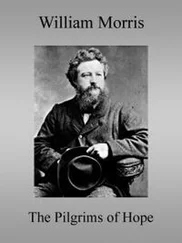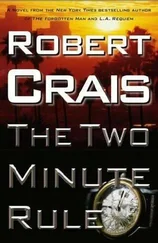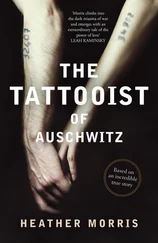“Thanks, Mac. I owe you one.”
“If this inoculation’s what it’s cracked up to be, I’m going to do my damnedest to find you in a year or two, when things calm down, and collect.”
“You’re on,” Ashmead promised with real affection. Then he opened the car door, whose armored windows wouldn’t roll down, and motioned to Slick, who was reloading and looking their way, to bring the team in out of the radioactive spring wind blowing in off the panhandle.
Beck had finally put Sam Nye’s story into perspective and two and two together: it wasn’t that Nye was addled, it was that he was acting under orders.
Sam hadn’t admitted it, of course, which just proved that the Agency was still paranoid and Beck, more than ever with Watkins running the show, was still considered an outsider.
But the Agency, and Nye, who had worked on 159 for two years after Beck had left, apparently thought it was feasible to revive 159 in a last ditch attempt to turn back the clock, to literally correct the intelligence failure that had led to the Forty-Minute War before it occurred.
Beck still didn’t believe it could be done, but Nye had evidently convinced the Agency that it was worth a try. That was why Chris Patrick was on the other chopper with the sightseers rather than in the Black Hawk carrying Beck, Nye, Ashmead, Slick and Thoreau to Fort Bragg that night, and that was why it was going to be very difficult to get any time alone with her at Bragg or find a way to sneak her aboard his chopper in the morning.
And Beck wasn’t so sure he wanted her along. Not only was the mission at a security level that defied classification, but it was almost certainly one from which none of the participants would return.
Langley was simply too hot. No radiation suit, not even the black ones which they’d been issued to separate them from the dips and Patrick in their white ones and provide some operational cover if they ended up running through city streets at night, could protect them totally in a red zone like Langley, where ambient ionizing radiation was the least of their worries. If, by some miracle, he got out of Langley alive, it wasn’t just a matter of a shortened lifespan: Beck wouldn’t be producing any more children; Morse’s serum wasn’t effective against genetic damage or sterilization.
He was feeling resentful and paranoid; he knew he was shocky with grief over Muffy and the kids, but the Agency could have leveled with him, not tried to manipulate him like a civilian and use his best friend to do it.
Still, if Nye was right and President Beggs was seriously considering a second strike, what difference did it make?
Two years ago, when the ancient cat he’d gotten Muffy on returning from their honeymoon had been put to sleep, Beck’s wife had broken down so completely she was sure for a number of hours that the vet had just told them their cat had to be put to sleep so that he could sell it to an animal experimentation program: that sort of paranoia was a function of physiological grief and, though intellectually he understood what was happening to him, Beck couldn’t help but wonder if Nye was telling him the truth about Muffy and Seth and little Jen. For all he knew they were really alive somewhere, in an Agency holding facility or a burn hospital like the one they’d taken the dips through earlier today en route to Bragg in a nicely orchestrated bit of psychwar that silenced all accusations that the fact-finding tour wasn’t going to be shown anything embarrassing to America.
The burn hospital had done more than that: it had silenced all conversation and brought Dugard, the NATO honcho, to tears.
For Beck, it had been a personal nightmare: he kept looking for familiar faces among those laved in cream and gel and once, standing above the bed of a woman who had only one side of her face left and merely a handful of remaining hair, he’d thought he saw one.
But the woman wasn’t his wife; not only the chart at the foot of her bed but the look in her single eye told him that.
Still, he’d had all he could do not to bolt when he excused himself to find the men’s room, and then he’d seen Chris Patrick, a white-swathed lonely figure in the hall, packing a Detonics in a strap holster and leaning her head against the tiled corridor wall while tears streamed unheeded down her face.
He couldn’t help himself; he took her in his arms and held her head against his chest: if he’d broken her cover, he didn’t care about it at that moment; any man would have held a total stranger in those circumstances.
She said to him, “What I don’t understand is why the sky looks so friendly. The clouds are white, the air smells sweet, and it’s all a lie.”
“Shh,” he said. “Shh.”
“If it weren’t for you, I’d use this thing,” she pushed her hip, where the pistol nestled, against him. “Please, let’s get out of here, go home, go back to Israel, together, alive.”
“We will,” he’d promised. “In three days’ time. Just hold on. We need you so badly. America’s counting on you.”
“Fuck America.”
He didn’t say that America was pretty well fucked already; he said: “ I’m counting on you.”
She could relate to that. She pulled back from him of her own accord as they heard footsteps and pushed her way into the ladies’ room, a gamin if puffy-lipped smile on her face: “Right,” she said in an imitation of Slick. “Check.”
It wasn’t until they’d piled back into the two Black Hawks waiting outside the burn hospital and lifted vertically into a magnificent sunset that Beck began to feel guilty about lying to her, about caring about her when his own family remained unaccounted for, about the degree to which her presence made him willing to accept at face value Nye’s—CIA’s—assurances that his wife and kids were dead in Georgetown.
The rest of the trip to Bragg had been a nightmare the like of which he had never experienced—not during the entire aftermath of the war.
He couldn’t talk; if he opened his mouth he was going to start screaming; he just stared out the window at the sparse lights below and listened in his radiation hood’s phones to Ashmead’s people bantering; even though he should have been trying to pinpoint a moment in time at which Ashmead’s team could change history, he didn’t bother. Nye’s plan seemed like a hopeless, absurd game, the only result of which would be more death: his, Ashmead’s, Slick’s, Thoreau’s. And Nye’s, but that was okay because Nye didn’t care any more.
He kept seeing a death’s head grin on Slick’s beautiful face and Ashmead with only half a head of hair and wondering if he was finally going mad.
But he wasn’t that lucky. He calmed down and the cowboy talk around him became no more than an annoyance as his body cycled him into a different phase of shock, in which he could float, detached, superior and at ease: he knew what was going to happen; none of these macho types around him had any idea what lay in store for them.
At Bragg, among the Delta and Ranger personnel on post, life seemed almost normal except for the radiation precautions—respirators and gloves and raincoats and boots, no worse than Jerusalem had been: Bragg, due to serendipity and favorable winds, was a low-risk survivable zone.
Bragg’s commanding officer had them to dinner and showed Beck’s dignitaries that life at an American military base could be civilized. NATO General Dugard had retrieved his uniform and strutted around happily, at ease in his bailiwick, and his gratefully gleeful mood infected everyone but the Japanese: Zenko Tsutsumi remembered Nagasaki and Hiroshima and his eyes were full of ghosts as he came up to Beck and pulled him aside.
Читать дальше












